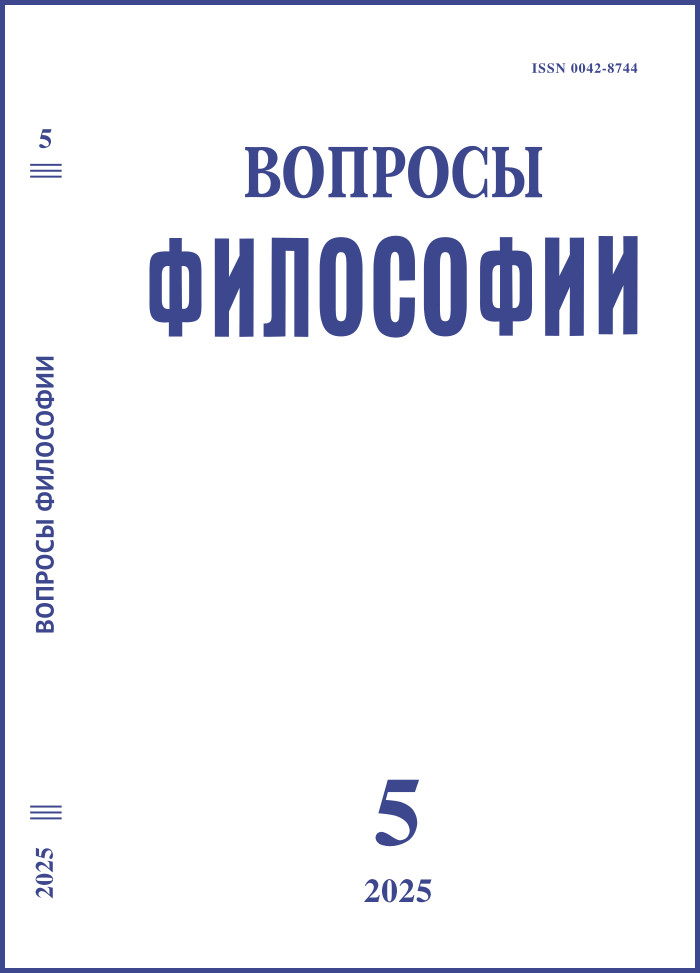Philosophical Accounts of Great Victory
DOI:
https://doi.org/10.21146/0042-8744-2025-5-5-9Keywords:
Great Patriotic War, Victory, Russian culture, historical memory, Russian philosophy, archive, P.S. PopovAbstract
The eightieth anniversary of Victory over Fascism is not only an occasion to remember the heroic feat of the Soviet people, who defended their homeland and fought for the right to a future for all humanity. We return to the history of those victorious days to understand what we can and must pass on to today’s younger generations. This is necessary to prevent, if not the oblivion and deliberate rewriting of history, then at least its pseudo-demythologization, which effectively reduces the cultural and historical significance of human activity to a purely mundane level. First and foremost, the authors turned to articles and poetic works published in “Literaturnaya Gazeta” on May 10, 1945, in an effort to “grasp with thought” the emotions experienced by domestic (representing various nationalities) and foreign writers, poets, scientists, philosophers, and cultural figures who contributed to this celebratory Victory edition. By sharing their present – the joy of Victory, their past – the sorrow for the fallen, and their future – the dream of Peace and the Beauty of Creation, we accept their Testimony in its full intellectual and emotional integrity. In doing so, we actualize historical memory in its entirety today, embedding “historical facts” within their archival context. Particular importance in this regard is given to the study of archives of Russian philosophers – Witnesses of the Great Victory. The authors have brought to light the archival text of Pavel Sergeevich Popov “Russian Culture and Its World-Historical Significance”, highlighting the unifying role of Russian intellectual culture in the multinational Soviet people’s struggle against Nazism. They clarify its contribution to Victory and demonstrate its significance in preserving historical memory – not only regarding the events of those years but also the experiences of the Witnesses themselves.

